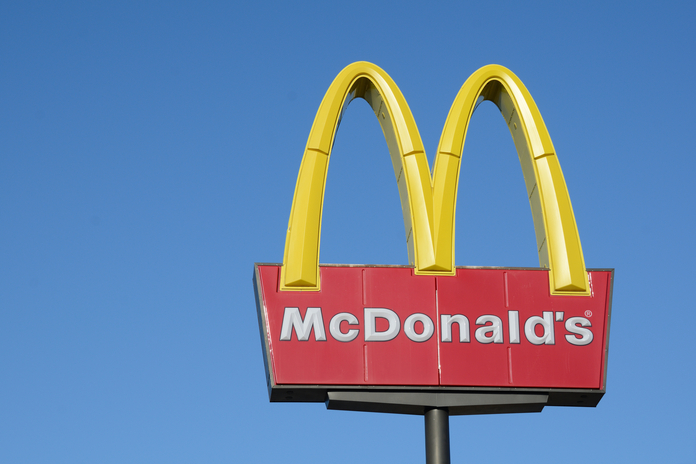Investment thesis
McDonald’s (NYSE:MCD) is a reliable, long-lasting company. The business has demonstrated its toughness in a range of economic situations. Digital channels will likely be a significant development driver in the future. The company’s profits and top line may increase due to more data and engagement.
Shares are currently trading at a high price, though. The stock’s growth is probably going to lag. For investors looking for stable income and low volatility, shares seem like a fair offer. I advise value and growth investors to watch for a pullback.
Recessions and inflation have little effect on growth
High inflation and the possibility of a recession have been the two main economic worries of this year. I think McDonald’s is well-positioned to expand and prosper under each of these circumstances.
The company has shown that it can withstand the recent inflationary environment. Comparable sales in the US climbed by 3.7% year over year in the most recent quarter. Comparable sales increased by double digits for the company abroad in both of its international reporting areas.
The profitability of McDonald’s is still high. The margin of operating profit remained stable. The company recorded a little under 38% of TTM EBIT margins. These results are only a little less than the business’ most recent average of 40%.
Management made it clear that pricing increases are to blame for the recent US top-line rise. Instead of more traffic, pricing power has recently resulted in revenue growth. Despite the company’s limited pricing power, the chain has demonstrated the ability to at least counteract inflation.
During a recession, revenues at restaurants frequently fall. However, I don’t believe this applies to McDonald’s. The chain’s worth is well known. There are many cheaper things on store menus. Throughout the year’s first half, the corporation has talked about a “trade down” in US markets.
This indicates that some customers are making larger purchases from the value menu at McDonald’s. They also reject more expensive package offers at the same time. The bottom line for McDonald’s is negatively impacted by this scenario. However, it also generates substantial revenue, which counteracts declines in higher-priced goods.
Additionally, McDonald’s could be able to price its goods competitively with home-cooked meals. Management talked about these trends on their most recent earnings call.
“We track as many of you do as well, food at home versus food away from home. And right now, we’re seeing a significant gap. We think, by our measure, it’s the largest gap we’ve ever seen and — well, is seen in 50 years between food at home and food away from home, meaning that food at home has increased pricing significantly faster than what food away from home, McDonald’s and others in our industry have done.”
McDonald’s has demonstrated that it can weather downturns in the economy. The business maintained solid performance throughout the 2008 recession. I believe there is little risk to the company’s revenue and earnings. Value, brand, and pricing power are substantial competitive advantages for the company. Each of them contributes to the sustainability of McDonald’s income and profit.
Data is a driver of growth and profitability
For McDonald’s, conventional expansion strategies are becoming less viable. The company in 119 nations has already established over 40,000 stores. Each additional store has a minor positive impact on the firm as a whole as it expands. Opening more stores is no longer a surefire way to expand.
The business must now determine how to increase sales and profit from current clients. I appreciate the company’s efforts in digital sales because of this. I am aware that these days it appears like every business has an app. However, McDonald’s has done an excellent job of enticing users to utilize its app regularly. The company’s QSR app has received the most downloads in the US. Recent months appear to have seen an increase in the rate of new downloads.
About a third of all sales during the most recent quarter were made through digital channels in the top six markets. About 22 million US loyalty members were active in the most recent quarter. This is roughly 7% of the total population of the nation!
These apps offer a great deal of knowledge regarding users’ shopping habits. A business with unique offerings can target customers. The vast volumes of data these apps produce can also assist the business in localizing its approach. This has implications for the effectiveness of the company’s marketing and advertising.
In the past, all customers had to receive offers. Then, costly regional or national networks had to be used for marketing the discounts. The business can now target clients with tailored offerings. Their apps serve as an affordable, direct advertising avenue. This may eventually play a significant role in driving both top-line growth and higher profits.
The assessment is still reasonably pricey
For a business that is still growing, McDonald’s valuation is pretty high. With a forward P/E ratio of 26 and a TTM P/system sales ratio of roughly 1.7, the company is now trading. This seems excessive for a business whose top line is anticipated to expand at a mid-single-digit rate.
Herein lies the main danger I perceive for the shares of McDonald’s. It makes natural that a company with a vast competitive advantage, such as McDonald’s, would fetch a higher price. However, the corporation must quickly increase its bottom line to maintain its multiples. Even if the company can do that, I think the inherent upside of the shares is constrained.
Conclusion
McDonald’s is a solid company with a wide moat and little room for error in its fundamentals. I believe that the business can increase its margins by using targeted data.
Comparing the share price to McDonald’s growth potential, it is pricey. I think income investors ought to keep an eye on this business. Shares have little volatility, little potential for loss, and a consistent, increasing dividend. For more conventional value investors, I would hold off on buying or holding shares until there was a decline.
Featured Image: Megapixl © Sepavo















